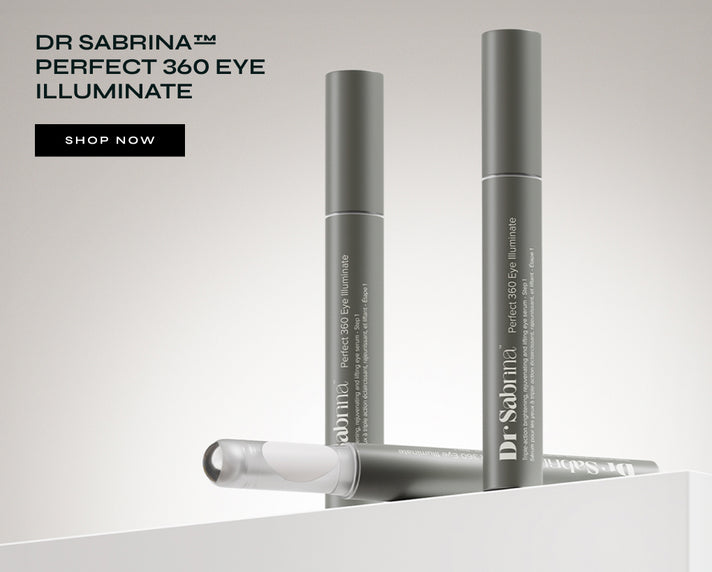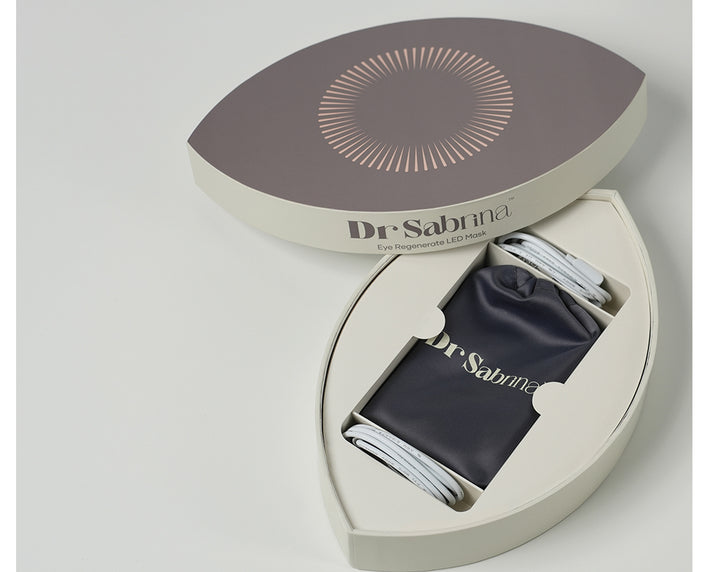Eye Serum
Glutathione Benefits for Your Skin and Side Effects

Glutathione is a popular ingredient in skincare, widely used for its antioxidant properties and anti-ageing effects. However, despite being a popular ingredient, not many are familiar with its detailed properties. What is glutathione? What are the glutathione benefits for skin? And are there any side effects of glutathione? Let's dive into each of these aspects in detail.
What is Glutathione?
Glutathione is a natural antioxidant found in every cell in the human body, and is composed of three amino acids: cysteine, glutamic acid, and glycine. It plays a pivotal role in protecting cells from damage caused by free radicals and oxidative stress, both of which can adversely impact skin health and accelerate the ageing process.
The body’s natural glutathione levels may decrease over time because of age, environmental exposure, and other factors. The glutathione benefits and side effects have made it a topic of great interest in the skincare industry. Skincare products containing glutathione can be a great addition to your routine and pair well with other products like sunscreens to provide enhanced protection.
Quick Tip: Always use a sunscreen with at least SPF 30 rating—if you’re wondering what is SPF and why it matters, it’s a measure of how effectively the product protects your skin from UVB rays.
What is Glutathione Good For?
Glutathione's antioxidant, detoxifying, and immune-supporting properties make it play an essential role in many of the body’s natural processes. Here are some of the primary health benefits associated with glutathione:
1. Powerful Antioxidant Protection
Glutathione is one of the body’s most important antioxidants, helping to neutralise free radicals and protect cells from oxidative damage. This function is essential for reducing inflammation and supporting long-term health.
2. Detoxification Support
One of glutathione's key roles is assisting the liver in detoxifying harmful substances. This helps the body eliminate toxins more effectively, contributing to better digestive and immune health.
3. Immune System Support
Glutathione plays a crucial role in supporting immune function, helping the body fight infections, and aiding in recovery. By maintaining optimal glutathione levels, the immune system can function more efficiently.
4. Improved Energy Levels
By aiding processes that increase cellular energy production, glutathione can help improve endurance and vitality.
5. Skin Health and Radiance
One of the most well-known glutathione benefits for skin includes brighter, clearer complexion and even tone.
Glutathione Benefits for Skin

So, what are the glutathione benefits for skin? Here are the top ways in which glutathione can contribute to healthier and more radiant skin.
1. Hyperpigmentation Reduction
Glutathione inhibits melanin production, meaning it can lighten up dark patches, age spots, and post-inflammatory hyperpigmentation.
2. Anti-inflammatory Effects
Glutathione reduces inflammation in conditions such as acne, eczema, or psoriasis.
3. Detoxification
By improving the detoxification process, glutathione can help improve skin clarity and health.
4. Anti-ageing
Oxidative stress is one of the primary causes of premature ageing. Glutathione fights oxidative stress, thus reducing the appearance of fine lines and wrinkles.
5. Anti-Acne/Scars
Some research shows that glutathione can reduce acne scars and blemishes. This property makes it a great ingredient to look for in products like an eye serum.
6. Skin Textures
Glutathione can also make the skin smoother and hydrated.
These glutathione benefits for skin make it a popular skincare ingredient, especially among those who want to improve their skin health without using artificial substances.
Side Effects of Glutathione on Skin
Although glutathione benefits for skin are well known, it’s important to consider the glutathione side effects on skin too. Common issues include:
1. Allergic Reactions
Individuals allergic to glutathione may have a reaction and develop rashes or itchy skin when they use glutathione supplements. However, this is very rare since glutathione is a naturally occurring substance in the body and usually happens due to high doses of glutathione.
2. Gastrointestinal Problems
Some people have reported nausea, bloating, and abdominal pain after taking huge doses of glutathione. This typically happens when oral glutathione supplements are used.
3. Respiratory Problems
Large doses of glutathione, especially via injections, might lead to respiratory problems, particularly in asthma patients.
4. Skin Lightening
While glutathione helps with skin brightening, the lightening effect may not align with everyone’s expectations.
Glutathione Supplement Benefits
When it comes to supplements, glutathione benefits can differ based on how they’re consumed. Here's what to expect from different forms:
1. Skin Brightening and Tone Improvement
Oral and Injection: Both oral and injectable glutathione are known for their skin-brightening effects, helping reduce hyperpigmentation, age spots, and discolouration. Injection is often the most immediate and potent option, while oral supplements provide a gradual improvement over time.
2. Detoxification Support
Oral: Oral glutathione helps support liver detoxification, aiding the body’s natural toxin elimination process. This can have an indirect positive impact on skin health by reducing impurities that can contribute to breakouts.
3. Anti-Ageing and Antioxidant Support
Topical and Oral: Glutathione is a powerful antioxidant that fights oxidative stress, which contributes to skin ageing. While oral supplements provide overall cellular support, topical forms help target external ageing signs like fine lines and dullness directly on the skin’s surface.
4. Reduction of Acne and Blemishes
Topical: Topical glutathione can be beneficial for those dealing with acne scars and blemishes. It may help lighten post-inflammatory hyperpigmentation, providing a smoother, clearer complexion.
5. Immune System Support

Oral and Injection: While glutathione’s immune-boosting benefits aren’t directly tied to skin health, they can help reduce inflammation-related skin issues. Oral and injectable forms are commonly used to support immune function, which can indirectly benefit the skin.
Each type of glutathione supplement offers distinct advantages, so choosing the right form based on your skin goals can help you maximise the specific benefits.
Final Thoughts
Glutathione benefits and side effects go hand-in-hand, and understanding both is key to achieving glowing skin safely. Whether you’re using glutathione in topical, oral, or injectable form, its antioxidant and brightening properties make it a standout ingredient. However, knowing the glutathione side effects on skin helps you use it responsibly.
Ultimately, combining glutathione with a full skincare regimen—hydration, SPF, and healthy diet—gives the best results without risk.
FAQs
What is glutathione, and why is it popular in skincare?
Glutathione is a powerful antioxidant that protects cells from damage and supports skin health. It’s popular in skincare for its skin-brightening and anti-ageing properties.
What is glutathione good for when taken as a supplement?
Glutathione is known for boosting immunity, supporting detoxification, combating oxidative stress, and promoting overall cell health.
Are there side effects of glutathione supplements?
While generally safe, glutathione supplements may cause side effects in some cases, like nausea, bloating, and undesirable skin-lightening effects. Allergic reactions are also possible for some individuals.
How does glutathione benefit skin health?
Glutathione helps reduce dark spots, improves skin texture, fights oxidative stress, and supports detoxification for clearer, healthier skin.
Can I use glutathione with other skincare products like SPF?
Yes, glutathione can be used with SPF products. Glutathione protects against oxidative stress and neutralises free radicals, while SPF shields the skin from UV damage. Using them together provides enhanced protection for your skin from UV damage and is especially beneficial for maintaining skin brightness and health.

















